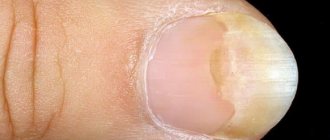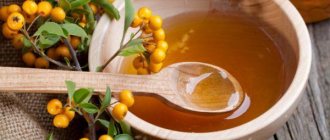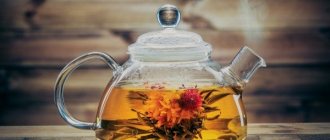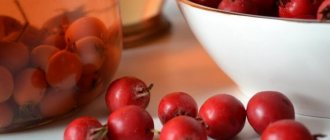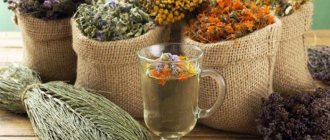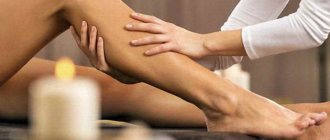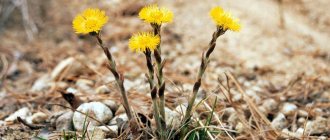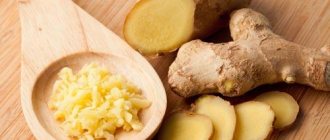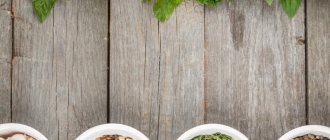The human heart is an amazing organ. In a healthy state, it works perfectly, without interruption - 24 hours a day, throughout the entire journey of life. It contracts about 100 thousand times per day. The problem occurs when it beats faster than necessary.
Moreover, a person often pushes him to abnormal activities himself, through his lifestyle. Modern people (without taking into account gender and social status - man, woman, teenager...) are in constant tension and haste... And the worst thing is that the faster we make our “engine” work, the less we live!
It is the pulse that is often neglected among all the signs, but its high values are just as dangerous to health as, for example, high blood pressure. Frequency/tempo is at the forefront as an indicator of the risk of diseases of this organ.
Heartbeat, increased or, conversely, decreased blood pressure and rapid pulse can have different causes.
The most common include:
- overexertion, stress;
- nicotine;
- alcohol;
- cocaine;
- caffeine;
- amphetamines.
However, these same reasons can also provoke a low heart rate; The doctor will advise what to do in such cases. In addition, there are a number of folk tips for increasing heart activity, which, however, are the topic of another article.
What does it mean to have the correct pulse?
Pulse determines the number of heart muscle beats per minute.
The ideal contraction frequency ranges from 50-60 beats/min. Previously, a value of 70 beats was considered normal, but today it is indicated as too high, suggesting an increased risk of problems and diseases in the future.
Teach your heart to beat slower
How to lower your heart rate at normal blood pressure at home? Just!
It is enough to follow a few basic rules:
- Regular active movement is one of the most effective methods to calm the heart, increase the level of good cholesterol while simultaneously reducing the concentration of bad cholesterol;
- movement helps the body get rid of fat taken in from food, protects blood vessels from the sedimentation of bad cholesterol; A brisk half-hour daily walk is ideal;
- Jogging to the tram will also help to gradually reduce the frequency of contractions;
- try not to use the elevator; “walking” on the stairs is extremely beneficial for the cardiovascular system and physical condition;
- swimming is an ideal activity for all ages (in particular, a young girl will appreciate it, for whom this sport will help strengthen her chest muscles).
Traditional medicine methods to eliminate tachycardia
The photo shows products that help normalize the functioning of the cardiovascular system.
In order to find out how to lower your heart rate at home, you need to familiarize yourself with the list of plants that normalize the number of heartbeats.
Rosehip reduces heart rate
For increased heart rate, folk remedies, berries, rhizomes and herbs are used in dry or fresh form. Frozen foods lose many components that help restore heart rate.
The fruits of the rose hips have many positive effects for the human body. The berries contain natural ascorbic acid, carotene, vitamins B, E, P, potassium salts, iron and phosphorus.
Not only rosehip fruits, but also its leaves and stems have a medicinal effect. A decoction can be prepared for oral use in patients who do not have an allergic reaction to the components of the natural product.
How to quickly raise your pulse at home, properly collect and prepare the fruits:
- Rose hips are collected from late summer to early autumn. During this time period, the berries retain their density. Freezing fruits is not recommended. For long-term preservation, they are dried in an oven or in direct sunlight, which significantly preserves their healing properties.
The clinical picture of tachycardia is an increase in the number of heart contractions at rest. Rosehip decoction normalizes heart function.
Folk remedies for high heart rate have a positive effect on the human body if prepared correctly. Rose hips must be washed under running water. To make a decoction you will need 1 cup of berries. Then they are ground in a coffee grinder or blender.
The resulting mass is poured with 1 liter of boiling water and left in a thermos for up to 7 hours. Afterwards, filter and consume half a glass orally 3 times a day.
Important! If you prepare the decoction incorrectly and do not follow the proportions, you can either increase or decrease your heart rate. There is no need to self-medicate. If tachycardia occurs, it is better to seek help from a doctor.
Elixirs for the heart
You can help your heart by drinking various drinks from natural sources.
The most common folk method is to drink water from melted ice. Experts say that the structure of ice corresponds to the structure of biomolecules - large molecules of proteins and nucleic acids, which are the main carriers of vital functions and inheritance. Preliminary research suggests that such water is an excellent remedy for treating the heart, stimulates blood circulation and even helps in the treatment of varicose veins and hemorrhoids!
Place the water in the freezer. Then partially defrost the ice and store it in the refrigerator. It is recommended to drink this water in the morning and throughout the day, about an hour before meals.
Another important drink is green tea. It tones the muscles, has a positive effect on the capacity and elasticity of blood vessels, has a positive effect on high blood pressure and has a general strengthening effect. It is recommended to drink green tea at least 3 cups a day.
How to reduce heart rate using folk remedies
Proven methods, used for centuries, help reduce heart rate using folk remedies. They are based on light sedative herbs, which have become the basis for many dietary supplements and medications. The most effective recipes include:
- Fruit drink or blackcurrant compote, this easy method provides quick calm. Drink regularly instead of tea.
- Collection of calendula and motherwort. The ingredients are taken in equal quantities of 1 teaspoon, pour 0.5 liters of boiling water and infuse for 20 minutes. Drink half a glass before meals, adding 1 tablespoon of honey.
- Rose hip tea. Pour 3 tablespoons of berries into 400 g of cold water and boil for 10 minutes. Drink one glass 3 times a day.
- Collect herbs - valerian, lemon balm, dill seeds and hops, pour boiling water and leave for 10-15 minutes. Take after meals 2-3 times a day. Continue treatment for 2 weeks.
A little alcohol won't hurt!
Red wine, grape juice and even moderate amounts of beer have significant therapeutic and preventive properties. Numerous studies confirm that moderate amounts of alcohol provide some protection against heart disease. Some experts point to the fact that red wine contains cholesterol-lowering substances. Juice from grapes, especially dark ones, has a similar effect. This is due to flavonoids. In addition to grapes, flavonoids are also found in strawberries, cranberries, apples, broccoli and cabbage. Beer also has a healing effect. This fact has been shown by many studies.
Note! Moderate alcohol consumption is a few sips, not 3-4 cans of beer a day!
The protective factors in beer are represented by the same flavonoids, polyphenols and B vitamins. Ordinary honey water also has miraculous effects. Just stir 1 tbsp in a glass of warm water. honey and drink during breakfast. The drink calms a rapid heartbeat and has a general strengthening effect.
Article for you:
Bitterness in the mouth, how to get rid of it, causes and treatment
Herbal treatment
Drinking ginger tea may protect against heart attacks.
Ginger additionally supports the body's overall defenses. Of the “core” herbs, the following are especially common:
- hawthorn;
- mistletoe;
- common horehound;
- alchemilla (cuff);
- Melissa;
- chamomile.
A very important plant is the hawthorn. It strengthens the heart, increases cell activity and dilates the coronary arteries. Can reduce stroke frequency and blood pressure.
At the same time, it relieves insomnia and fatigue. The most effective agents are flowers, leaves and, finally, fruits. The effect of hawthorn is noticed only after 2 weeks of treatment. It is recommended to drink tea in the morning and evening.
Another herb, mistletoe, increases the flexibility of blood vessels. It also has an excellent effect on high blood pressure and calms nervous disorders.
Horehound, in turn, regulates the functioning of the heart, especially stabilizing an irregular and fast rhythm. Alchemilla (cuff) tea regulates arrhythmia and other heart related problems. Melissa tea calms arrhythmia and helps normalize blood pressure. Chamomile tea with honey has a calming effect.
Herbal tea Herbal tea can be prepared from equal parts of the following plants:
- rosemary;
- lavender;
- mint;
- calendula.
The combination of the following herbs also has healing effects:
- hawthorn;
- meadow core;
- St. John's wort;
- Melissa.
Pour 1/4 liter of boiling water over a spoonful of the mixture and brew for 15 minutes. It is recommended to drink 2-3 times a day for 2 weeks.
Garlic medicine Ingredients:
- 100 g garlic;
- juice of 6 lemons;
- water.
Preparation: Pour lemon juice over chopped garlic. Store in an airtight glass container in a cool place.
Dosage: 1 tsp. Mix the medications in a glass of warm water and drink several times a day.
Garlic Syrup Ingredients:
- 30 garlic;
- 3 lemons;
- 1 liter of water.
Preparation: Grind crushed garlic cloves with peeled and seeded lemons. Place in water and boil. After cooling, strain the broth and place in a cool place.
Dosage: 1 glass before meals. You can sweeten the drink, but directly in the cup.
Ginger Punch Ingredients:
- approximately 3 cm of fresh ginger;
- a piece of cinnamon;
- 2 cloves;
- 2 coriander;
- lemon peel;
- 500 ml water.
Preparation: cut the ginger into small pieces and cook in water with spices and lemon peel for about 15 minutes. Strain and drink several times a day.
Healing wine Ingredients:
- 1 liter of natural wine;
- 10 stems with parsley leaves;
- 1-2 tbsp. wine or apple cider vinegar;
- 250 g honey.
Article for you:
Ear pain, what to do - the best methods of treatment at home
Preparation: Add vinegar and parsley to wine and simmer for 10 minutes. Then cool to 40? C and add honey. Rinse the bottle with strong alcohol, and only then pour the prepared wine into it. Close carefully and store in a cool place.
Dosage: a glass before meals.
Folk remedies to lower heart rate
It is no secret that the most vulnerable people (pregnant women, pensioners, men and women with allergies) find it most difficult to find medications that lower their pulse.
An excellent alternative to pharmaceutical drugs is folk remedies for lowering heart rate. The most popular recipes are:
- Rose hip decoction. It is advisable to add a spoonful of honey to this decoction.
- Tea “from grandma’s dacha”: you need to take five dry hop cones, a teaspoon of dill seeds and five to seven lemon balm leaves, pour boiling water over the resulting mixture. Leave for twenty minutes.
- Chamomile tea.
- Black currant. People prone to heart palpitations would do well to keep frozen currants in the house at all times. Two tablespoons of this treat will help even out your heartbeat when the need arises.
Proper breathing will help!
Breathing can also affect your heart rate. For example, practiced during the exercise known as yoga.
In order to feel an improvement in your condition, you need to do breathing exercises 5 times a day as follows:
- it is important to be careful with the individual phases of breathing;
- deep breathing should last about 7-10 seconds;
- holding your breath - approximately the same time;
- slow deep exhalation should ideally continue for 14-20 seconds.
Such temporary indicators, of course, cannot be achieved overnight; gradual training is necessary. With continuous slow exhalation, the frequency of contractions decreases.
When the pulse is considered frequent - normal indicators
To provide every cell of the body with nutrients and oxygen, the normal functioning of the cardiovascular system is necessary, which is represented by a central organ in the form of the heart, as well as a complex system of blood vessels. The heart generates impulses and contracts, pushing blood, while the vessels, thanks to the elastic wall, absorb its contractions, stretching and narrowing, conducting the pulse wave further and further. This forms a pulse, which directly depends on the heart rate (HR). The faster the heartbeat, the higher the pulse rate.
If the heart rate is rapid, this condition is called tachycardia, but if the heart rate is low, it is called bradycardia.
Blood pressure may not change, since it largely depends on the condition of the blood vessels. Thus, it is quite common to observe a picture in which it is necessary to reduce the pulse at normal pressure.
When is this appropriate? The pulse in both hands should be uniform, equally frequent, and the pauses between beats should be of the same length. The normal contraction frequency is on average 60-70 beats per minute for an adult, although it may deviate slightly (for example, athletes have a low pulse, which is not a deviation). A child’s normal indicator is much higher, his heart beats faster - the pulse of children under 3 years old can reach 90-110 beats per minute, for 3-8 years old the typical indicator will be 80-90 beats, and for teenagers the norm is almost the same as an adult, sometimes increasing up to 80-85 contractions.
If the heart rate is rapid, this condition is called tachycardia, but if the heart rate is low, it is called bradycardia. Both conditions can have both physiological and pathological causes. Tachycardia can be caused by damage to the heart muscle or a compensatory reaction to changes in homeostasis, bradycardia by circulatory failure.
Medicines
To normalize heart activity, 2 main groups of medications are used: beta blockers;
calcium channel blockers. Beta blockers Drugs in this group are 1st-line drugs in the treatment of hypertension, cardiovascular diseases and heart rate acceleration. If your blood pressure is normal, it is better to consult a specialist who will recommend medications that lower your pulse but do not lower your blood pressure.
Today, there are a number of generations of beta blockers, which differ slightly in action.
The general indicator is the blocking of ss-receptors in the heart. Stress hormones, such as adrenaline and norepinephrine, usually bind to ss receptors. Beta blockers block these receptors. This causes the heart rate to slow down.
Beta blockers:
- Acebutalol;
- Betaxolol;
- Bisoprolol;
- Carvedilol;
- Celiprolol;
- Metoprolol;
- Nebivolol.
Disadvantages: Beta blockers may cause an excessive decrease in blood pressure.
Calcium channel blockers (CCBs) CCBs are popular drugs for both treating high blood pressure and lowering heart rate. They can be taken alone or in combination with other medications.
The active substances act on calcium channels in the muscle cells of the heart and blood vessels. Muscle cells relax, which leads to a decrease in blood pressure. The heart muscle contracts less and, thus, the number of beats decreases.
VKK are divided into 2 generations of drugs. 1st generation:
- Verapamil (combination drug);
- Diltiazet.
2nd generation:
- Amlodipine;
- Isradipin;
- Lacidipine;
- Lercanidipine.
Disadvantages: VKK should not be prescribed to pregnant and lactating women, as well as to patients with acute heart failure.
How to lower your heart rate at home using medicines and traditional medicine
The normal number of heart contractions in 60 seconds is from 60 to 80 beats. When performing physical exercises, it may increase, but is restored during rest. A pathology is considered to be a jump in a person’s heart rate at rest.
Patients with an increased number of heartbeats should consult a cardiologist to diagnose a disease of the cardiovascular system. With the test results in hand, the doctor will give recommendations on how to lower your pulse at home or, if necessary, begin treatment in a hospital with further rehabilitation at home.
At your appointment, the specialist will tell you how to measure your pulse at home, monitor your condition, and take medications correctly.
